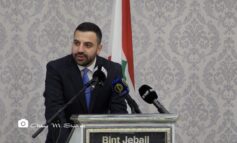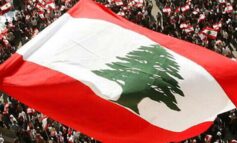Too much responsibility has been attached to the role of the next president of Lebanon who is due to be elected on September 25. This is why it is difficult to agree on who is going to be the next president. The opposition camp wants the candidate to be friendly to Hizbullah and its regional supporters (Syria and Iran) and the government camp wants to satisfy the West (mainly the U.S. and France) and elect a figure who would be distant from the resistance movement.
In recent days the diplomats of the world have been active in background negotiations for settling disputes of the September election. Coming nearly a year after last summer’s Lebanese-Israeli war, in which Hizbullah outperformed expectations, the election of a new leader for Lebanon has opened up an occasion for the international community to block Hizbullah’s renewed energy.

The question that divides Lebanese society today is how to handle Hizbullah’s refreshed military readiness in the context of U.N. Resolutions 1559 and 1701 and the sovereignty of the Lebanese state. The two recent resolutions require Lebanon to terminate militia formations. Certainly the Lebanese people would naturally love to see their national army be the sole protector of their nation. But there are more factors to consider in relation to Hizbullah’s future in a fractured nation and an explosive region.
The Lebanese state is weak; the national army is feeble and the government is relying too heavily on Western governments to support it economically and politically. Hizbullah is popular and this resistance movement considers itself an auxiliary force against Israel. Moreover, in this country of four million people, four hundred thousand angry Palestinian refugees live in temporary camps and humiliating conditions. Syria wants the occupied Golan Heights back from Israel; Hizbullah is in solidarity with Hamas and Iran and Syria have a proxy war with the U.S. through Hizbullah. This heavy cocktail of issues should not be debated through the context of the presidential elections but they are.
Hizbullah is not simply a military force. It is a political party and a social service apparatus. It has allied with a secular and powerful Christian party (Reform and Change Front) of a former army general, Michel Aoun. Hizbullah leads the opposition bloc in the parliament which is mandated to elect the president of the Republic.
If the candidate for president is perceived to be hostile to Hizbullah, the opposition will boycott the election. Many in the government’s pro-West camp consider Hizbullah to be a militia that weakens the sovereignty of the state and promotes cross-border violence. Their first choice for a presidential candidate is likely to antagonize the opposition. Their ideal candidate would also be considered a threat to Syria and to Iran. The current government is asserting itself against Syrian influence on Lebanese affairs and it is supporting an international tribunal to find out who assassinated (in 2005) the former Prime Minister Rafiq Harriri.
The government’s pro-West coalition plans defiantly to proceed with the election even without the participation of the opposition bloc. In that case, the new president would be elected by a slim, near 51% majority vote, instead of the truly representative two-third majority.
Ideally, the new president’s primary mandate will be to establish a workable policy on the role of Hizbullah and its militia in the overall Lebanese defense system. At the same time he should be equidistant from the West and the Syrian-Iranian front. But in reality the momentum of decision making is coming from outside.
The presidential elections have turned into an international consultation of donor governments. Local politicians have formed irreversible international alliances and have frozen their problem solving through emotional rhetoric over the last ten months after the opposition bloc suddenly withdrew from the government and staged a massive sit-in strike. It is in Washington, Tel Aviv, Paris, Rome, Madrid, Cairo, Damascus and Tehran where the Lebanese candidate for the presidency is being negotiated. To have Tehran and Damascus agree with Washington on Lebanon’s future while they disagree on just about everything else is what explains the formidable challenge that faces Lebanon.
In a matter of days the country will face an historic turning point. There is justifiable fear that if the elections do not take place in harmony Lebanon will explode and fragment. If there is no compromise soon there may be a divided nation: one government will be formed for the Hizbullah led opposition and one for the current regime.
It would be a gross political error on the part of the Lebanese current government and its international supporters to alienate over half the country, particularly the Shi’a community, in scoring a technical victory in a rushed election with a slim majority. One hopes that survival instincts will lead the Lebanese soon to a candidate that would satisfy both the government and the opposition. The presidential elections should not be the occasion for solving all the political problems of the country. Never has Lebanon depended so heavily on the power of its president. In trying to fix Lebanon the international community may be breaking it. Can we draw a lesson from Iraq and Palestine?





Leave a Reply